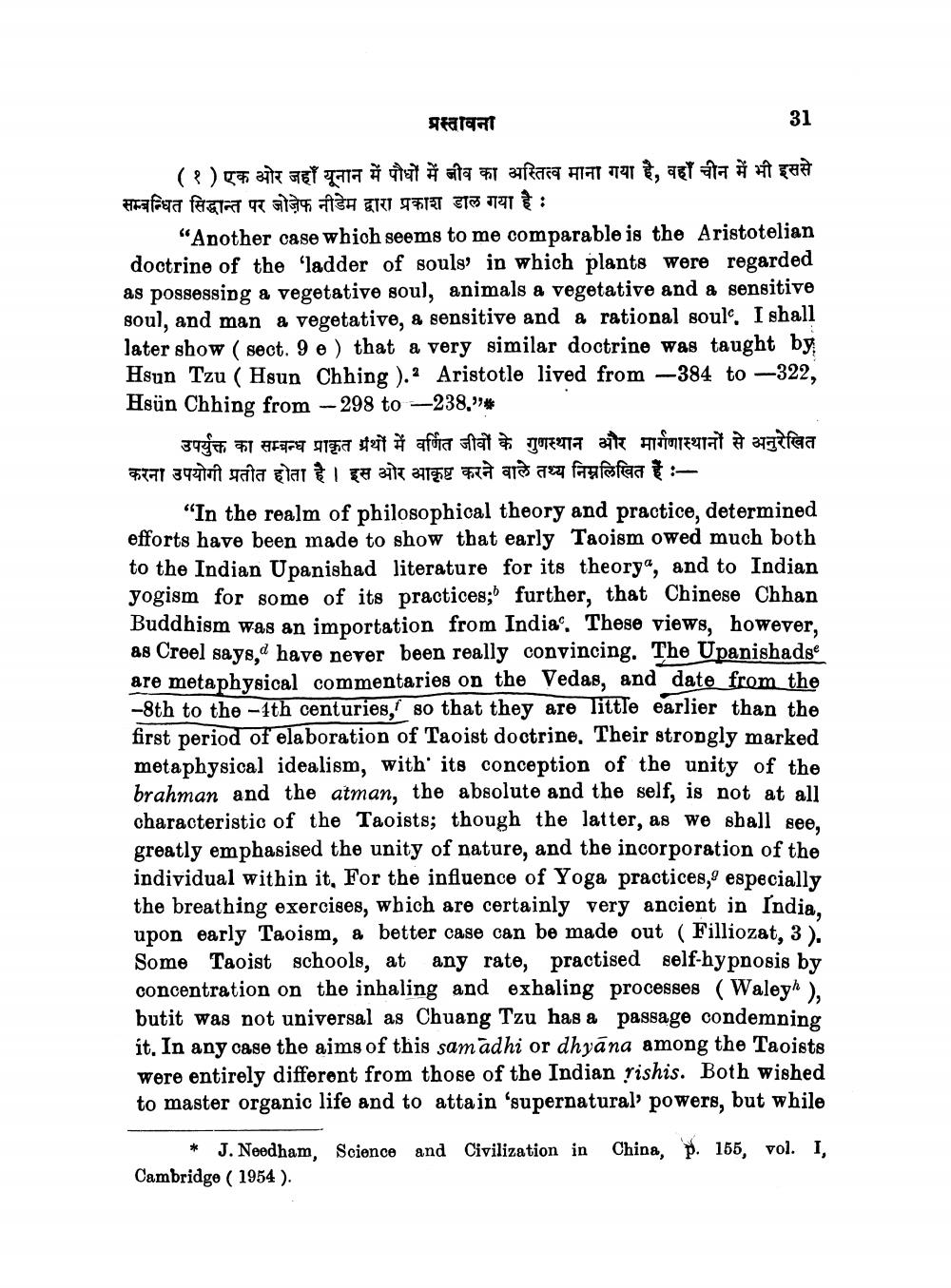________________
प्रस्तावना
31
(१) एक ओर जहाँ यूनान में पौधों में जीव का अस्तित्व माना गया है, वहाँ चीन में भी इससे सम्बन्धित सिद्धान्त पर जोजेफ नीडेम द्वारा प्रकाश डाल गया है :
“Another case which seems to me comparable is the Aristotelian doctrine of the 'ladder of souls, in which plants were regarded as possessing a vegetative soul, animals a vegetative and a sensitive soul, and man & vegetative, a sensitive and & rational soul. I shall later show (sect. 9 ) that a very similar doctrine was taught by: Hsun Tzu ( Hsun Chhing ).2 Aristotle lived from 384 to -322, Hsün Chhing from - 298 to --238."*
उपर्युक्त का सम्बन्ध प्राकृत ग्रंथों में वर्णित जीवों के गुणस्थान और मार्गणास्थानों से अनुरेखित करना उपयोगी प्रतीत होता है । इस ओर आकृष्ट करने वाले तथ्य निम्नलिखित हैं:
"In the realm of philosophical theory and practice, determined efforts have been made to show that early Taoism owed much both to the Indian Upanishad literature for its theorya, and to Indian yogism for some of its practices; further, that Chinese Chhan Buddhism was an importation from India. These views, however, as Creel says, have never been really convincing. The Upanishadse are metaphysical commentaries on the Vedas, and date from the -8th to the -1th centuries, so that they are little earlier than the first period of elaboration of Taoist doctrine, Their strongly marked metaphysical idealism, with its conception of the unity of the brahman and the atman, the absolute and the self, is not at all characteristic of the Taoists; though the latter, as we shall see, greatly emphasised the unity of nature, and the incorporation of the individual within it. For the influence of Yoga practices, especially the breathing exercises, which are certainly very ancient in India. upon early Taoism, & better case can be made out (Filliozat, 3). Some Taoist schools, at any rate, practised self-hypnosis by concentration on the inhaling and exhaling processes (Waleyh ). butit was not universal as Chuang Tzu has a passage condemning it. In any case the aims of this samadhi or dhyāna among the Taoists were entirely different from those of the Indian rishis. Both wished to master organic life and to attain 'supernatural powers, but while
China, p. 155, vol. I,
* J. Needham, Science and Civilization in Cambridge ( 1954).




